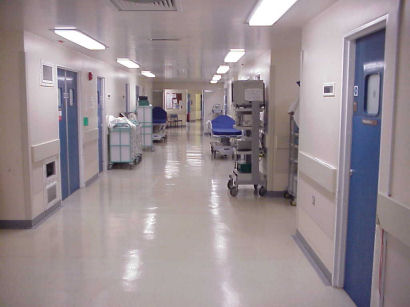NHS 'heading for £30bn funding gap'
Posted: Thu, 11 Jul 2013 10:41
The NHS in England needs to take urgent decisions about reorganising hospital and GP care to avoid a growing funding gap, according to its leaders.
In a report, NHS England warns that by 2020-21 the gap between the budget and rising costs could reach £30bn.
The organisation's chief executive, Sir David Nicholson, said services needed to be concentrated in fewer hospitals.
Otherwise he said pressures could lead to another tragedy on the scale of the failings at Stafford Hospital.
Sir David Nicholson: "The NHS is facing really significant challenges"
Sir David told BBC Radio 4's Today programme: "We need to make sure that the way in which services are organised is in the best way for patients."
He said concentrating specialists services was key - citing stroke services in London where 31 hospitals used to provide stroke care, with the city having some of the worst outcomes for patients. Services are now concentrated in eight hospitals - and outcomes are some of the best in Europe.
Sir David also said preventative care and improved services for people in the community were crucial - and said there needed to be a drive to make the NHS more efficient and productive.
He said it was "really very urgent" that decisions were made.
And Sir David said trying to maintain services in the same number of hospitals could lead to staffing numbers being cut on every ward.
"That is completely unacceptable to us in the NHS.
"It's a really stark choice for us, do we go for service change, change in the way we deliver services to patients or do we sleepwalk into a position where we reduce the quality for patients."
He warned that: "If we don't tackle these issues now and over the next couple of years - the future for many of our organisations is facing those very dangers that Mid Staffordshire faced during the years it was involved in this terrible tragedy."
Local opposition
NHS England plans to publish a document giving some indication of the scale of reform needed by the end of the year.
"It is unacceptable that the only solution to the financial pressures is to reduce care to patients or charge for services"
Accadeny of Royal Colleges spokesman
It expects most of the new local Clinical Commissioning Groups (CCGs) to come forward with more detailed plans for meeting the financial challenge early in 2014.
The warning of a further £30bn gap between NHS funding and likely costs and demands comes on top of an estimated £20bn the health service is being asked to find by 2014/15.
Hospital changes have been very controversial in communities across England.
In Stafford, despite the criticisms of the local hospital in the public inquiry, tens of thousands of people took to the streets to object to plans to downgrade some services.
The controversial plans for services in the town have been drawn up rapidly after the involvement of a special administrator appointed by the healthcare regulator Monitor. A final decision about the proposals is expected within weeks.
But the call for a more honest debate about how savings should be made within the health service was welcomed by medical organisations.
The Academy of Medical Royal Colleges said it agreed that changing where and how services are delivered was better than other less palatable options.
"Doctors would certainly agree that it is unacceptable that the only solution to the financial pressures is to reduce care to patients or charge for services," a spokesman said.
Political challenges
Prof Chris Ham, chief executive of the Kings Fund think tank said the need for fundamental change was pressing, following the disruption of the recent reorganisation of the NHS in England.
"The government's recent NHS reforms failed to address these challenges.
"This time politicians and policymakers must deliver. This means having the courage to transform services, rather than making further bureaucratic and structural changes."
The very public call by NHS England for backing to make changes which will lead to some hospitals losing services or units will increase the pressure for all political parties to define their future positions on health service funding.
Before the 2010 election, all the main parties agreed with the call from Sir David for £20bn worth of savings in the NHS in England by 2014/15.
Now NHS England is pressing for them to acknowledge the funding gap after the next election may only be bridged with difficult and controversial change.
Economist Anita Charlesworth, from healthcare policy research group the Nuffield Trust, said hospitals did need to improve efficiency, but that merging two hospitals was not the answer.
Instead, she said, seeking ways to prevent people from reaching a crisis point where they needed a hospital in the first place could be one solution, as well as improving community healthcare.
Christina McAnea, from the Unison union, said there needed to be a debate about the future of the NHS.
She added: "With funding flat lining and the demand for £20bn in so-called efficiency savings, is it any wonder that the there is potentially a funding gap?"
More information: http://www.bbc.co.uk/news/health-23258962


